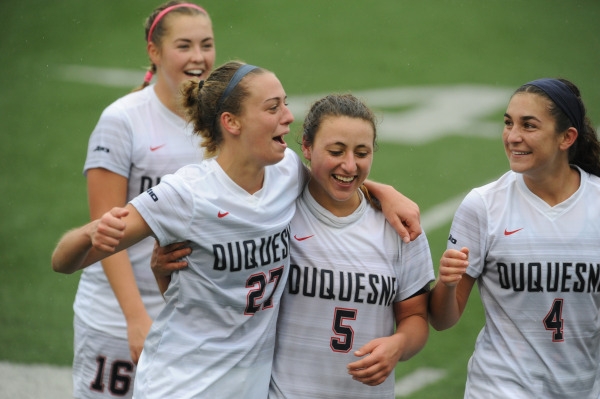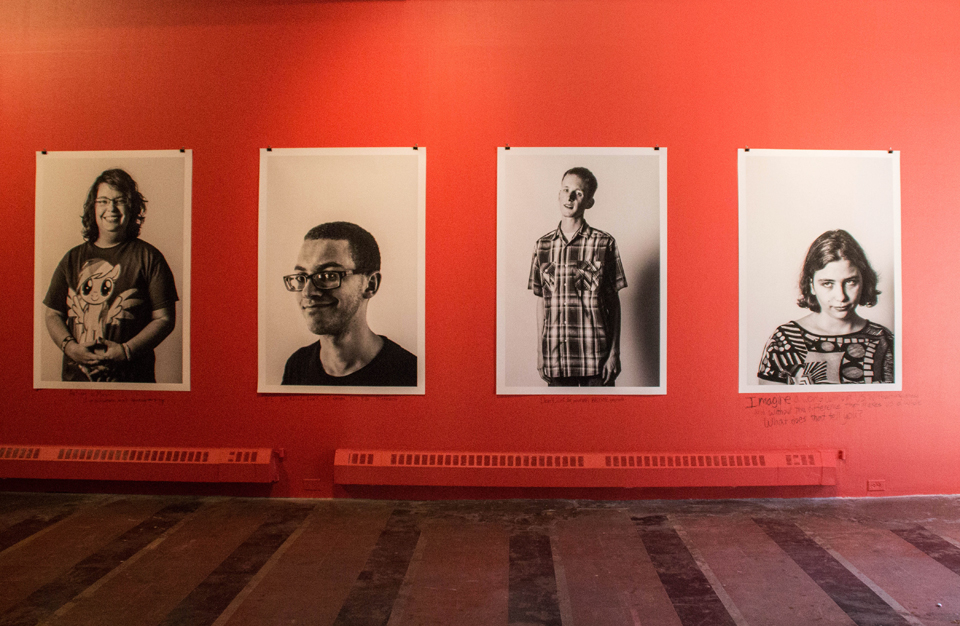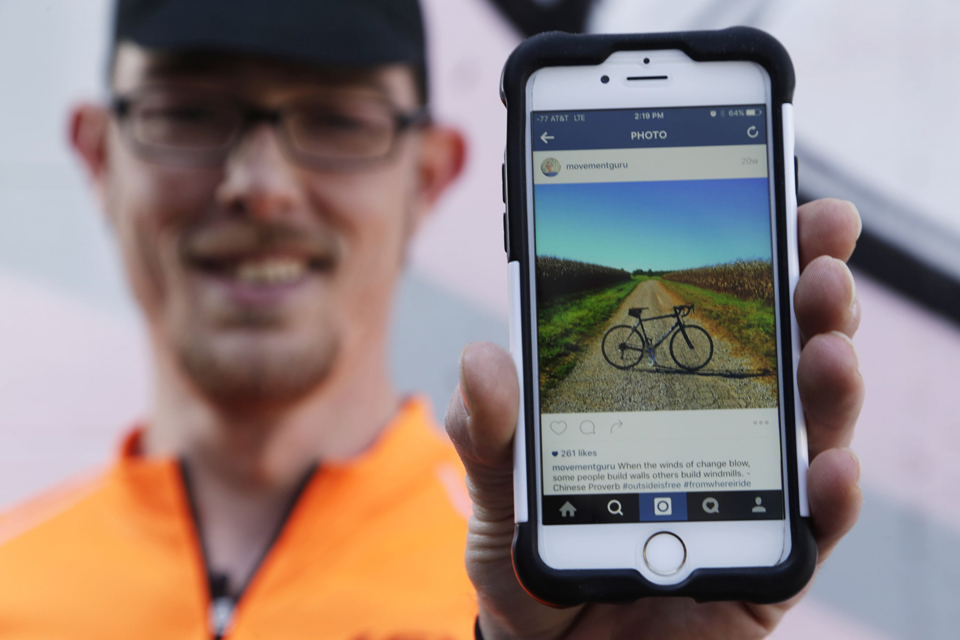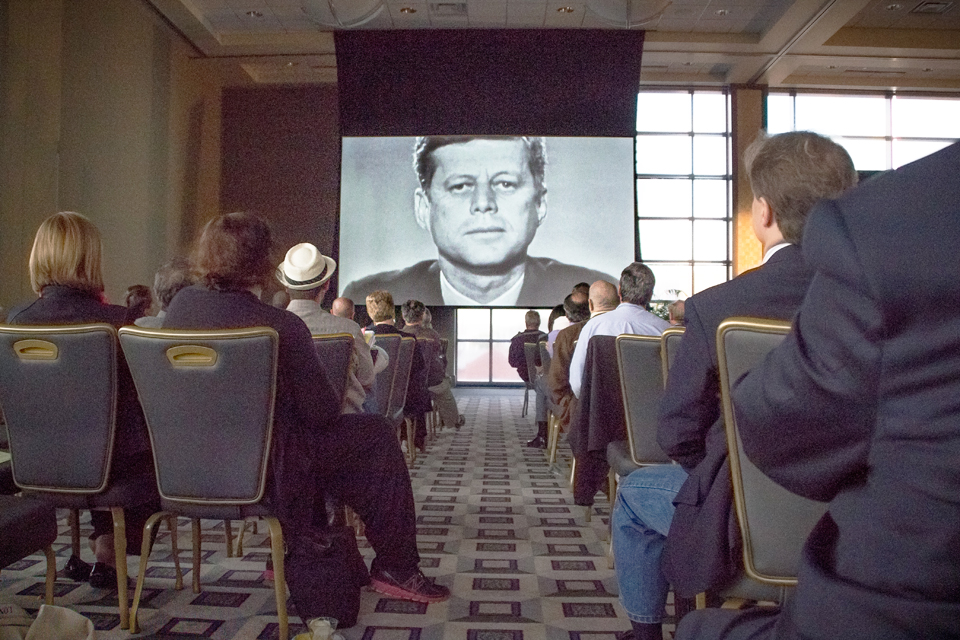
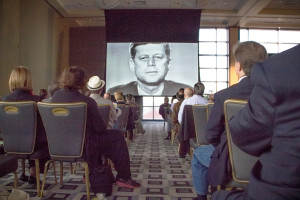
By Julian Routh and Addie Smith | The Duquesne Duke
History books say that President John F. Kennedy was shot and killed by Lee Harvey Oswald alone. But a conference in the Power Center Ballroom last week brought up other possibilities.
The Cyril H. Wecht Institute of Forensic Science and Law hosted a three-day symposium in the Power Center Ballroom last week dedicated to the study of the assassination of President John F. Kennedy.
“Passing the Torch,” organized by Cyril Wecht and his son, Ben, featured some of the nation’s most prominent Kennedy assassination experts participating in a series of panel discussions, lectures and presentations.
Ben Wecht said the conference, which started last Thursday, was called primarily to address the problems with the 1964 Warren Commission Report, which has been “upheld in terms of our collective understanding of history.” However, an investigation by the House Select Committee on Assassinations in the late 70s and a number of persuasive books written by accomplished scientists suggest that the lone gunman theory concluded by the Commission is “not valid,” Wecht said.
These issues, along with the idea of the CIA withholding important documents from the government, were discussed by renowned journalists and scientific and legal specialists at the conference.
It was not a gathering of conspiracy theorists, but a collection of factual accounts given by educated professionals in the field, presenters said.
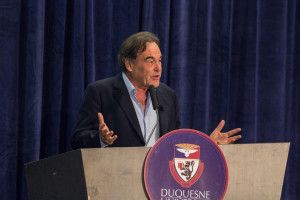
“Overall, we wanted to show our participants that the work they have been engaging in or observing or reading about is serious work and not a joke,” Wecht said. “It’s not flaky or nutty or anything along those lines.”
According to Wecht, the symposium was “remarkable,” especially the crowd and array of informative and well-spoken speakers.
The conference’s first day was headlined by a video conference appearance by Robert N. McClelland, who was one of Kennedy’s attending physicians at Parkland Memorial Hospital on Nov. 22, 1963, the day the President was shot. In his lecture, McClelland said he remembered seeing a large exit wound in the back of Kennedy’s head, which conflicts the government’s accounts.
Acclaimed historian and JFK director Oliver Stone spoke during the second day of the symposium.
Stone, who was there to promote his upcoming DVD set The Untold History of the United States, showed a 16-minute clip from the set about JFK and his time in office.
Rather than focusing on the assassination of Kennedy, Stone’s speech and video clip focused more on JFK’s legacy and policy. He spoke of the man JFK was throughout his presidency, and how he believed that if Kennedy was not assassinated, American policy would have taken a different course in history.
Also speaking on Friday was forensic analyst William Kelly, who discussed his forensic analysis of the Air Force One tapes from the day JFK was assassinated. Kelly analyzed two different tapes and combined them to provide a broader spectrum.
Kelly discussed his process in remastering the tapes and transcribing them in their entirety. He expressed his hope and belief that one day more of the Air Force One tapes will emerge from the woodwork and be completely unedited.
The symposium’s final day included a presentation from former Washington Post writer Jefferson Morley and a panel discussion moderated by Cyril Wecht about the future of JFK assassination study.
According to Morley, the CIA is withholding 1,100 documents related to the assassination, and are not scheduled to release them until 2017. Morley revealed the results of searches he ran on a database, which indicated thousands of pages with pertinent information that are being held in secret.
Author and researcher Lisa Pease, who spoke on the final day about the media’s influence on the case, said the truth about the assassination must be revealed because “huge things” are at stake.
“If we want to live in a democracy, a democracy takes a huge amount of work and a huge amount of citizen involvement,” Pease said. “It takes being extremely critical of the facts you’re presented.”
Pease traveled from Los Angeles to participate in “Passing the Torch,” and she was more than pleased with the three days of Kennedy assassination analysis.
“I’ve spoken at a lot of JFK conferences over the years and Cyril and Ben put on the most professional of any conference I have been at,” Pease said. “It’s a pleasure they and the University committed to dedicate resources to bring this kind of information to the people. It’s a huge public service.”


